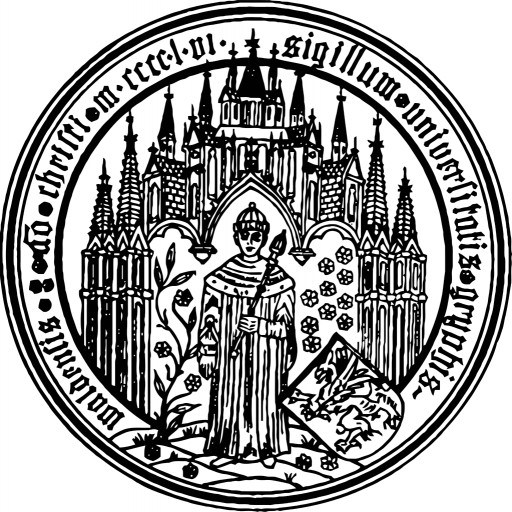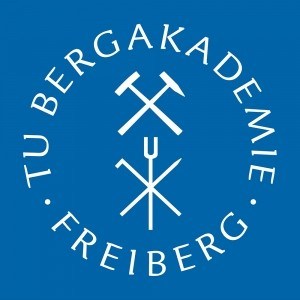Photos of university / #unigreifswald
The Bachelor's degree program in Earth Sciences – Georesources and the Environment at the University of Greifswald offers a comprehensive education in understanding the Earth's structure, its processes, and the utilization of natural resources in a sustainable manner. This interdisciplinary program combines aspects of geology, geophysics, geochemistry, and environmental sciences to prepare students for diverse careers related to natural resource management, environmental protection, and sustainable development. Throughout the course of study, students acquire essential skills in fieldwork, laboratory analysis, data interpretation, and scientific research methodologies. The curriculum emphasizes the importance of environmental awareness and responsible resource extraction, equipping graduates to address current and future challenges posed by climate change, pollution, and resource scarcity.
The program provides a solid foundation in basic sciences such as physics, chemistry, and mathematics, integrated with specialized courses on mineralogy, petrology, sedimentology, hydrogeology, and geoinformation systems. Students are encouraged to participate in practical projects, field excursions, and internships that foster hands-on experience and reinforce theoretical knowledge. The university’s state-of-the-art laboratories and research facilities enable students to engage in cutting-edge research activities, often in collaboration with industry partners or research institutes. Interdisciplinary approaches are stressed, emphasizing the interconnectedness of georesources and environmental systems.
Graduates of this program are well-prepared for careers in natural resource extraction industries, environmental consulting, environmental management, and policy-making. They may also pursue advanced studies or research positions in academia or specialized organizations. The program aims to develop not only scientific expertise but also critical thinking, problem-solving skills, and a sense of environmental responsibility, making its graduates highly valuable in the global effort to sustainably manage Earth's resources and protect its environment.
Educational organisation
Our Earth Sciences Master's programme has many lines of specialisation. The international programme, which is held in English, focuses on "Georesources and the Environment" and consists of five core modules that define this field of specialisation. Additional optional modules can be selected individually to enhance the student's scope of interest. The Master's programme also includes a "personal profiling" module and a "literature discussion and thesis proposal" module to help students develop soft skills prior to finishing the Master's thesis. The other lines of specialisation possible within the framework of our Earth Sciences Master's programme, namely "Geology" and "Quarternary Science", take place either in German or in English.Study abroad unit(s)
It is strongly recommended that students complete three "mobility modules" during a semester at a university abroad. Specific courses at internationally esteemed universities can be taken, provided the courses comprise geoscientific and environmental aspects and conclude with an evaluated examination.Greifswald University uses specialised DAAD programmes (German Academic Exchange Foundation) to support student exchanges, especially to South East Asia and the CIS (GUS) countries.
Forms of assessment
The modules are concluded with one examination (oral examination, written examination, or presented paper and report).Course objectives
Graduates with an MSc in Earth Sciences - Georesources and the Environment will obtain:- substantial state-of-the-art knowledge of geosciences, in particular with respect to georesources and their environmental impact
- the ability to critically discuss various geoscientific methods in theory, practice, problem analysis and interpretation, as well as their relevance to other disciplines
- specific skills for recognising and modelling spatial-temporal structures and complex physical, chemical, and geological processes in the geosphere as well as interactions with the biosphere
- an understanding of the interdependence between recent and past processes and events in Earth history
- the ability to pursue autonomous scientific research in association with scientists and professional experts from related disciplines
Language requirements
FCE, TOEFL (CBT) 227, TOEFL (IBT) 87, TOEFL (PBT) 567, TOEIC 785, IELTS 5Alternative: seven years of English in school
Academic requirements
- First degree (BSc or Diploma) in geosciences, environmental studies, or equivalent
- Grade of (at least) 2.5 or 72.5%
- 20% of credit points of the first degree in geology
Enrolment fees
80 EUR per semesterCosts of living
Monthly living expenses amount to up to 650 EUR and include the following:- accommodation: 150 EUR - 200 EUR
- health insurance: 50 EUR
- food: 150 EUR - 200 EUR
- leisure activities: 100 EUR - 200 EUR
- total: 450 EUR - 650 EUR
Job opportunities
Students from countries outside the EU or EEA can work for four months per year (120 days full-time or 240 days part-time) without a work permit. Since Greifswald is a rather small town, job opportunities are limited. However, positions as student assistants to professors are available for students with good or above-average overall results. They are allowed to work for more than three months a year during their studies.Arrival support
Students from EU member states just need to bring their passports. No visa is required.Students from outside the EU need their passports and a visa for study purposes. This can generally be obtained from the German embassy in the home country within four to eight weeks. Usually, the letter of acceptance sent by the International Office at Greifswald University is required in order to have a visa issued. To simplify the administrative procedure, students from abroad should inform the programme coordinator of the date and time of their arrival. This is also important for possibly picking you up at the train station. During the last week in September, just before the winter term starts, Greifswald students organise a programme for our "freshmen" students. The newly arriving students meet each other, discover the town together, and are offered all kinds of information and help.
Services and support for international students
Intensive individual mentoring regarding all kinds of questions is a special feature of the programme.Accommodation
Greifswald University does not have classic on-campus accommodation. Rather, it has several buildings, which are mostly located in the town centre. The Faculty of Science buildings are next to the university library. Various student residences are spread around the town.They are run by the "Studentenwerk". Both single and double rooms are available, fully furnished and equipped with dishes and kitchen items. The rent is approx. 100 to 180 EUR including electricity, heating, and the use of laundry facilities. Upon arrival, you will have to pay the first month's rent and a 125 to 150 EUR security deposit, which will be returned when you move out.
If the "Studentenwerk" cannot provide a place in one of its buildings, the Students' Association (AStA) will support you in finding accommodation. Furthermore, the private residential market and free student initiatives also provide affordable flats.







